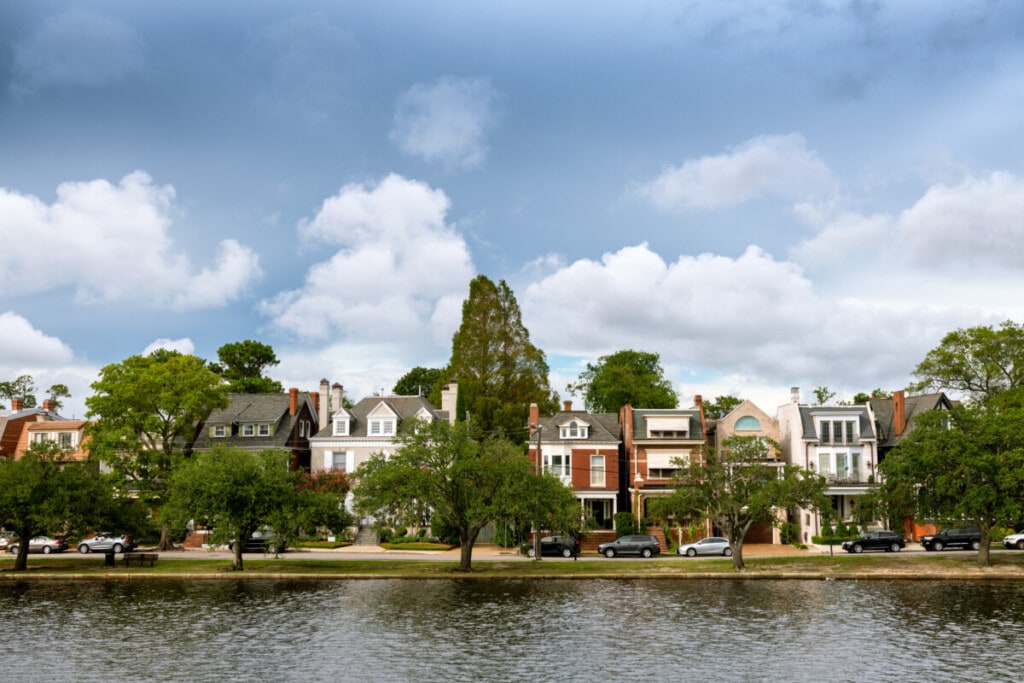How Much Are Closing Costs in Virginia 2024?

Congratulations! You’re only a few more steps away from closing on your new home. But before you can officially close, there’s one last step: pay closing costs.
Closing costs are the fees and expenses associated with finalizing a real estate transaction and transferring ownership of a property from the seller to the buyer. If you’re feeling unprepared or overwhelmed, don’t worry. To help you budget for closing costs, this Redfin article will cover how much closing costs are in Virginia, who pays for them, and which costs you can expect to pay as a buyer and as a seller.
How much are closing costs in Virginia?
In addition to the down payment, homebuyers will also need to pay closing costs before securing the keys to their new home. As a general rule of thumb, you can expect closing costs in Virginia to add up between 2%-5% of the purchase price. But it’s important to remember that this is just a range and the total amount will depend on various factors, such as the purchase price of the home, the type of loan, and any adjustments negotiated with the seller.
For example, if you’re buying a home in Richmond, which has a median sale price of $424,995, closing costs could range anywhere from $8,500 to $21,250. Or, let’s say that you’re buying a home in Virginia Beach, which has a median sale price of $398,000. Closing costs for a home here could cost you anywhere between $7,960 and $19,900.
Who pays closing costs in Virginia?
In most areas, including Virginia, both the buyer and the seller will pay closing costs. But the buyer and seller will pay for different closing costs and likely have different total closing cost amounts. Another thing to keep in mind is that buyers typically pay for closing costs out of pocket, while the seller’s closing cost payments are often deducted from the home sale proceeds.
Buyer closing costs in Virginia
Closing costs in Virginia for buyers typically range between 2%-5%. If you paid earnest money, this amount will be subtracted from your closing costs, which will reduce the total amount you owe at closing. Earnest money is typically between 1%-3% of the home’s price. Let’s break down some of the common closing costs covered by the buyer:
Appraisal fee: Home appraisals, which typically range from $300 to $500, are usually paid for separately at the time of the service. However, if not, you’ll need to pay for this at closing.
Inspection fee: Home inspections in Virginia generally range from $300 to $500 – they can vary based on local rates and the property’s specific characteristics. If you don’t pay for the inspection at the time of service, this will need to be paid at closing.
Loan origination fee: Some lenders charge a fee for creating your loan. As you shop around for lenders, inquire about what it covers and whether it’s negotiable to avoid high fees.
Loan processing fee: In addition to the origination fee, your lender may also charge a fee for processing your loan. This typically covers underwriting and related services. It’s recommended to discuss this fee with your lender to understand what this fee covers and if it can be waived.
Loan discount points: If you’ve purchased points to lower your interest rate, you’ll usually pay a one-time fee at closing. Each point can lower your rate by 0.25% to 0.5%. Consider your long-term plans, such as how long you plan to own the home or if you plan to re-finance, before purchasing points.
Private mortgage insurance (PMI): Required for down payments under 20%, PMI might involve an upfront fee at closing, depending on the loan type. It’s usually part of your monthly payment, but some loans offer the option to pay it as a one-time fee.
Title insurance: Title insurance is a one-time closing cost, with buyers commonly paying for both lender and owner policies.
Homeowners insurance: Your annual homeowners insurance premium may be included in your closing costs in Virginia.
Homeowners Association dues: If your property is part of a homeowners association, you’ll likely pay one month’s dues upfront at closing. These fees vary and contribute to maintenance and operational costs.
Property taxes: Buyers may have to prepay property taxes as part of their closing costs in Virginia.
Seller closing costs in Virginia
How much closing costs are in Virginia for sellers will vary between each transaction, but here are some of the common fees and costs covered by sellers:
Real estate agent commission fees: These fees can be a significant cost for sellers. Commission fees may vary and are subject to negotiation. Sellers should discuss their options with their agent.
Homeowners Association fees: If the property is part of an HOA, the seller may need to pay a variety of fees. These can include HOA transfer fees, outstanding dues, and possibly a fee for obtaining HOA documents required by the buyer. The exact fees will depend on the HOA’s rules and regulations.
Property taxes: Any outstanding property taxes will be due at this time. However, if the seller has prepaid property taxes for the period that extends beyond the closing date, they may be credited back for the portion they’ve paid but won’t use.
Title insurance: Owner’s title insurance is another common closing cost in Virginia paid for by the seller.
Transfer taxes: If you’re selling a home in Virginia, you can expect to pay a state levied real estate transfer tax. These taxes are typically calculated based on the sale price or assessed value of the property. The specific rates and regulations can vary widely, so it’s important to be aware of the requirements in your area and factor in these potential costs when selling a property.
Median home sale price data from the Redfin Data Center during July 2024.
The post How Much Are Closing Costs in Virginia 2024? appeared first on Redfin | Real Estate Tips for Home Buying, Selling & More.







